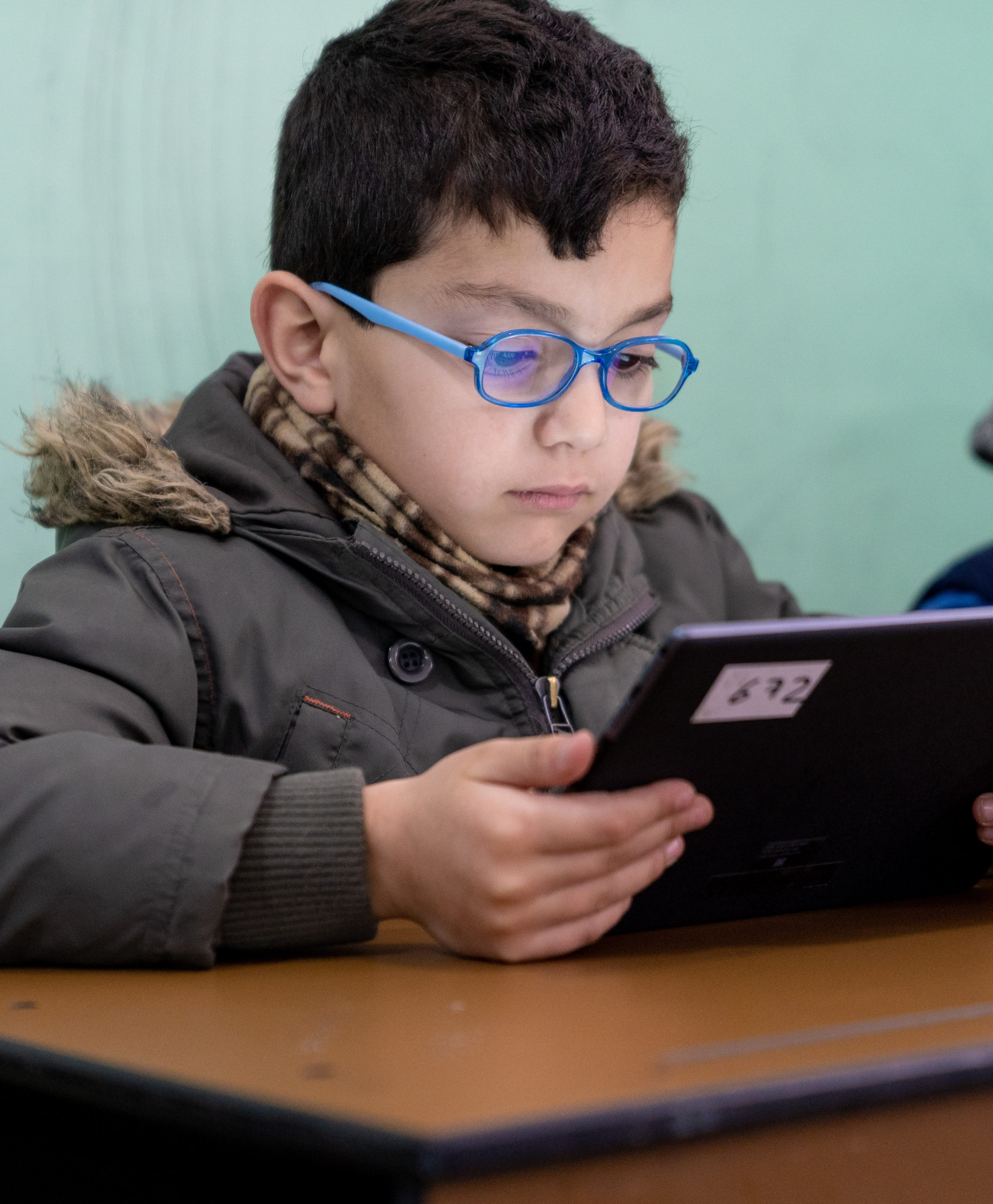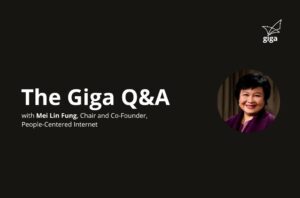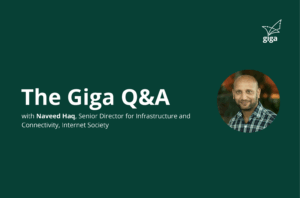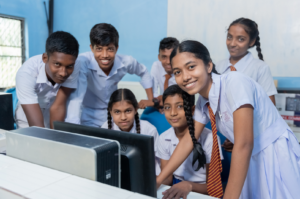Connect
Once school connectivity has been mapped and financing secured, Giga helps governments design the regulatory frameworks and competitive procurement processes needed to get schools online.
Since 2019, Giga and its partners have connected more than 5,539 schools to prove out new, sustainable business models and give children access to online learning during the COVID-19 pandemic.
We are sharing the lessons with governments and other partners, with a view to supporting national rollouts and scaling up to connect hundreds of thousands of schools by 2024.

Accelerate is Giga’s exploratory arm to test solutions and provide insights to fast-track governments’ universal connectivity programs.
Using real-time monitoring for transparency and accountability
Connecting schools in rural, remote, and challenging environments
Improving schools’ connectivity and quality of service
Ensuring schools can pay for connectivity services over time
Using the school as a hub to extend connectivity and service to the entire community
Giga helps governments to develop their case for investment by:
- Building on existing country plans and policies by gathering data on the economic, political, and regulatory landscape
- Evaluating regulatory barriers and identifying potential levers
- Surveying market conditions for implementation by Internet Service Providers (ISPs), Mobile Network Operators (MNOs), and National Research and Education Networks (NRENs)
- Developing infrastructure resiliency studies and recommendations/best practices on the use of Universal Service Financing mechanisms
Giga aggregated the demand for connectivity across 63 schools in Rwanda’s Eastern Province and launched a common bid to connect them to broadband internet. Thirteen of the schools are located in refugee camps without access to electricity. Giga was able to secure a 30% to 55% reduction in the average price per Mb paid by schools in the procurement process. Additionally, the schools are being connected through fixed wireless with minimum speeds of 25 Mbps and up to 150 Mbps—an improvement of 400% in connectivity speeds for schools. Working closely with UNICEF Education (Reimagine Education) and Generation Unlimited, we helped ensure that students received tablets and laptops, and the right digital learning software.
Giga’s data and analysis has helped identify 1,160 vulnerable schools in Kenya, that are representative of the challenges to connect the remaining 23,300 unconnected schools in the country. In 2021, Giga launched a prototype to help the Government of Kenya connect the first 110 schools in this group, as a proof-of-concept to test diverse technologies reaching around 42,000 students & teachers. The prototype has supported the government’s investment in digital learning and the transition to a competencies-based curriculum, as students are using the government-sponsored devices to access fresh digital content from Kenya’s Education Cloud. In 2022, Giga will continue connecting the remaining schools in the prototype and exploring business models for schools to extend connectivity to their communities. This work has paved the way for a larger national financing and procurement effort to connect more than 20,000 schools.
Giga has helped the Government of Kyrgyzstan to generate $200k savings per year (40% of its education connectivity budget). By seeing all the schools on a map and their corresponding connectivity, the Government was able to renegotiate contracts and subsequently reduce prices by almost half (from $50/month to $28.5/month) and to almost double speeds (from 2Mbps to 4Mbps).
In Brazil, Giga contributed to discussions that led to the unlocking and approving the use of $270 million from the Universal Service Fund (USF) for connectivity with $48 million specifically set aside for school connectivity.
In Kazakhstan, where 99% of schools are connected, Giga partnered with the local government of Turkestan to provide high-speed internet to every child. Giga invested in the infrastructure to connect 38 remote schools, as local governments or akimats are restricted to finance connectivity works by the country’s procurement rules. Giga’s investment helped to connect the schools and highlight this legal vacuum. The Turkestan akimat is now advocating for changes in the rules so they can invest in improved connectivity for every child and young person.
Giga is exploring different business models for schools to generate resources that can support offsetting their connectivity service fees. In collaboration with the Government of Uzbekistan, Giga is transforming schools into hubs for connectivity redistribution to remote communities. In this model, schools will receive compensation from the internet service provider that is equal to 50% of the profits raised from selling connectivity to the public in a 5 km radius. With these resources, schools can pay for their service fees, re-invest to continue improving access to affordable connectivity or subsidize the internet costs of disadvantaged households.
Almost all schools in Palestine are connected to the internet: 96% of 2,284 schools have a connection with speeds higher than 5 Mbps. However, providing connectivity to marginalized schools in Area C is a major challenge. Schools in Area C can only be reached by wireless technologies, as planning and construction, as well as access and movement are restricted; thus, it is difficult for providers to connect them. Giga is helping the State of Palestine to connect 76 marginalized schools to benefit 10,000 students and 1,000 teachers, and implement sustainable business models so these students can always have access to information, opportunity, and choice.

The Giga Q&A with Mei Lin Fung, People-Centered Internet
Mei Lin Fung is Chair and Co-Founder of the People Centered Internet, begun in 2015 (with Vint Cerf, often called “a father of the internet”), which works to create a more equitable digital world. In this interview, she said it is time to shift the conversation from access to school to its impact. “These are the stories that need to be told—and the data that needs to be seen,” she says.

The Giga Q&A with Naveed Haq, Internet Society
Naveed Haq is Senior Director for Infrastructure and Connectivity at the Internet Society. He is focused on bridging the connectivity gap, particularly for unconnected and underserved communities in the Asia Pacific region. His background is in computer science and telecommunications, including regulatory work in his native Pakistan.

Bridging Dreams: How Connectivity is Opening Doors for Students in Ampara
In Ampara, the largest district in Sri Lanka’s Eastern Province, education is taking a digital leap forward. With vast distances stretching over 150 kilometers from one end to another—schools and students have long faced challenges in accessing quality education. Yet, change is on the horizon, driven by innovative efforts to bring connectivity to classrooms and create new opportunities for young learners.
